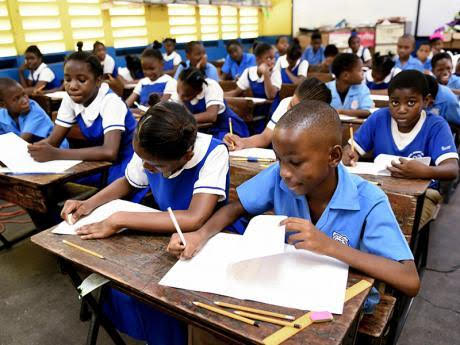 Jamaican Blue Mountain Coffee — a brand that has been recognized internationally for hundreds of years. Since the introduction of coffee into the Jamaican landscape, the product has been the favourite of the upper echelons of firstly British society, and subsequently found on the tables of Royalty and the seats of power throughout Europe. It has been mentioned by novelists relating to periods from the early 20th century and the habits of learned and rich society. At the peace conference at Yalta marking the formal ending of World War Two, it was reported that the meal served to the four world leaders present — Churchill, Stalin, de Gaulle, and Truman — terminated with the serving of Jamaican Blue Mountain Coffee.
Jamaican Blue Mountain Coffee — a brand that has been recognized internationally for hundreds of years. Since the introduction of coffee into the Jamaican landscape, the product has been the favourite of the upper echelons of firstly British society, and subsequently found on the tables of Royalty and the seats of power throughout Europe. It has been mentioned by novelists relating to periods from the early 20th century and the habits of learned and rich society. At the peace conference at Yalta marking the formal ending of World War Two, it was reported that the meal served to the four world leaders present — Churchill, Stalin, de Gaulle, and Truman — terminated with the serving of Jamaican Blue Mountain Coffee.
Grown in the higher regions of the Blue Mountains of Jamaica, the product has a distinct flavour, which has been recognized by coffee connoisseurs worldwide. It is this distinctive flavour that led to its international acclaim and subsequent high price.
Jamaican coffee has always enjoyed a premium price on the world market, with the price of any grade of Jamaican coffee being way above the prices quoted for coffee on the world’s commodities markets.
A few years ago (2013), I visited the US. Jamaican Blue Mountain Coffee was available for US$50 per lb while the nearest priced coffee to this was Kona from Hawaii, and a Kenyan type also had a premium price of over US$20. Jamaican Blue Mountain was at least 35 % more expensive than its nearest competitor. This is to demonstrate that Jamaican coffee is not subject to the usual vagaries of demand and supply, because of the special attributes that our product carries, which as far as I know, have not been replicated by any other country, despite serious efforts by parties whose interest is to devalue our coffee.
In 2007, the last year I served as a Director of the Coffee Industry Board, Jamaica’s total coffee production was less than 1% of world supply. At that time our total production was in the region of 550,000 boxes per year, of which approximately 458,000 was Blue Mountain. Last year, the figures for coffee production show 258,000 boxes. This is an indication that the policies that have been leading the Industry have disincentivized production.
One box of coffee weighs close to 60 lbs when freshly picked. By the time it is processed from cherry to bean, the weight of good quality beans should be in the region of 9.5lbs. These beans are then sorted and graded, and are ready for export as green beans, if they make the grade.
The prices received by exporters per lb of coffee can be US$25 per lb or even higher for the top grades, and can be as low as US$4 per lb for lesser grades (these estimates are conservative as the information available to me is a few years old).
This information must be qualified, as not all coffee produced meets the required standards for export. In fact, in 2007, 40% of the out-turn from the crop met the standards for Jamaica Blue Mountain Coffee premium grades, which attract the highest prices. This includes Jamaican Blue Mountain Grades 1, 2 and 3 and pea berry, while triage and stocklot Blue Mountain, although commanding higher prices than lowland coffee, can be as low as one-third of the price of the top premium grade.
When making a case for the farmers we have to be careful in simply looking at the price offered per box, as the contents of the box could have a wide range of values depending on the quality of its contents. This also raises another issue which has constantly been a source of concern for conscientious small farmers, which is that farmers who strive to produce good quality coffee and sell to the agents of the processors, are paid the same price per box as coffee of lesser quality delivered by less efficient farmers. This means that a farmer who consistently produces berries that are processed into beans which are then graded as the highest quality beans for export would, in effect, be subsidizing the inefficient farmer whose beans generally do not meet the exportable standards.
In 2007, under the leadership of Chairman Joseph Johnson and Director General Graham Dunkley, there was a project in the pipeline which had as one of its specific objectives, raising the level of outturn of exportable coffee to 70% of total production, through an extension programme to educate farmers in best practices. I have not been able to get the latest figures for the outturn, but I doubt that this objective was achieved if indeed the project was actually implemented.
The issue here is that the coffee that does not meet exportable standards must be consumed locally, but the prices that local manufacturers of coffee derivatives (“three in one,” and flavoured coffee beverages etc) can source their coffee at are much lower than those that the local processors are able to offer.
The question of quality coffee has more to do with the appearance of the coffee, bean size, colouration and uniformity (no damaged beans), rather than the flavour of the coffee, which does not vary much even when the beans are small and ugly. These beans could be used to provide genuine Blue Mountain Coffee for use in the hotel industry, which always commands higher prices than other coffees.
The foundation of the coffee industry is the farmers. If there are no coffee farmers, the processors who purchase the berries from the farmers would not have any beans to sell, so offering to pay farmers the price of J$3,000 per box in 2018 cannot be seen as anything less than a slap in the face and sheer contempt for the farmers. I sincerely hope that contempt and dismissal are not the intended attitude of the policy makers. “Ah weh we do yu”?
In 2010 the last time I sold any coffee, coffee farmers were being paid up to $3,000 per box, and this was considered to be barely acceptable, and please remember the exchange rate then was US$1 to J$90 which means that in US dollar terms the value of the farmers’ coffee has, over 8 years, fallen by 33.3%. (J$3,000 would have been US$33.33, @ $90/1 and is now US$22.22 @$135/1)
| 2010
$1US =$90 Ja |
2018
$1 US= $135Ja |
% loss in
US$ |
|
| Price per box Ja. $ | $3,000 | $3,000 | |
| Price per box Us$ | $33.33 | $22.22 | 33% |
The plight of the farmers is further worsened when we take into account the inflation that has occurred over the past eight years, notwithstanding the current boasting about low inflation, which appears to be some statistical anomaly we ordinary consumers are still hoping to experience.
The vagaries of the ever changing weather conditions make the task of keeping cultivation practices optimal, even more challenging. We used to operate on the principle that a decent profit could be made if farmers could produce 80 boxes per acre. At $3,000 per box in 2010, this would have been sufficient, but not spectacular. Having left the game, I can only speculate on the current costs, and commiserate with all coffee farmers.
The burning question now is what has happened to our niche/luxury market, for our unique and special product? Surely something drastic has occurred that has led to our processors/exporters being unable to make a profit at the prices they are able to command for our scarce and special product? Or is it possible that the processors and regulators have foolishly neglected to safe guard and nurture our farmers, without whom there would be no industry, as far as Jamaican Blue Mountain Coffee is concerned?
Has the market changed tastes, and Blue Mountain has lost its unique appeal to the rich and famous? The facts need to be laid on the table and an intelligent discussion, including all stakeholders, be initiated with the focus on saving our coffee industry.
Ten years ago Japan was our largest market. The financial crash of 2008 was the excuse used by Japan at the time for discontinuing advance payments to Jamaican processors, and that year marked a turning point in the relationship with Japan as far as coffee was concerned. From that time, there has been talk of diversification of our markets, and the industry has been in decline. What about the European and North American markets? Or do these markets require organically grown beans? Surely this is possible if there is the will, and organically grown beans will command even higher prices.
We are on the verge of reversing the process so sought after by ancient alchemists, changing lead into gold, as we seem hell bent on changing the God-given blessings of our natural product (our gold) into lead, and hanging this around the necks of our farmers.



